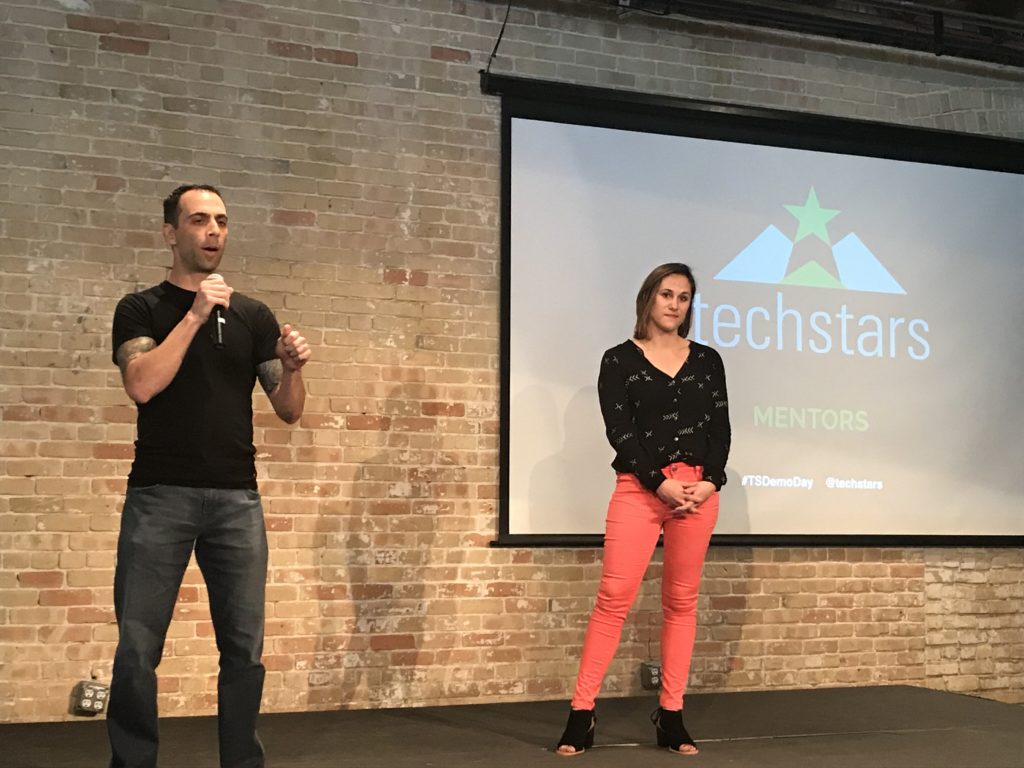
Amos Schwartzfarb and Zoe Schlang at Techstars Austin Demo Day 2018
By Laura Lorek
Publisher of Silicon Hills News
From dog walking services to robot teaching assistants, 10 startups pitched their ventures at the sixth annual Techstars Austin Demo Day.
This year’s class included six teams from the Carolinas and Virginia and four from Austin and half of them had female founders. They made their pitches to investors, mentors, community members and the media on Friday at Brazos Hall in downtown Austin.
Overall, Techstars footprint in Austin is growing.
In 2013, Jason Seats, venture partner at Techstars, launched Techstars Austin and in 2016 he handed the operation over to Amos Schwartzfarb, managing director of Techstars Austin.
Earlier this year, Techstars announced its second program in Austin focused on impact companies, Techstars Impact, headed up by Zoe Schlag, managing director. She just selected the first cohort of 10 for-profit companies focused on solving social problems.
“Austin is quickly becoming one of the best cities in the country, if not the world, to launch and grow a company,” Schlag said.
Techstars Impact program begins in June and on August 23rd, the cohort will pitch during its Demo Day, Schlag said.
During the 90-day program, Techstars companies receive mentorship from the Austin community and beyond. They also receive a $100,000 convertible note. And Techstars contributes $20,000 for expenses and receives 6 percent common stock from each company.
Some of notable Techstars Austin alumni companies based locally include Convey, ThreatCare, LawnStarter, SelfLender, WriterDuet, Patient.io, Atlas Wearables, and Authors.me.
“This is the Demo Day season I think and it feels like the biggest one in the seven years I’ve been here in Austin,” said Bob Metcalfe, professor of innovation at the University of Texas at Austin and inventor of Ethernet. He attended the Techstars VIP Demo Day pitches. “The quality of the pitches has gone up and up and up.”
The most compelling feature of a company is traction, Metcalfe said. And quite of few of the latest Techstars startups showed revenue growth during the last year.
“A large majority of these companies have bootstrapped their operations,” Schwartzfarb said.
That meant several already had customers, revenue, and traction and had tested their ideas before they entered the program, Schwartzfarb said.
The 10 Techstars Austin startups included the following:
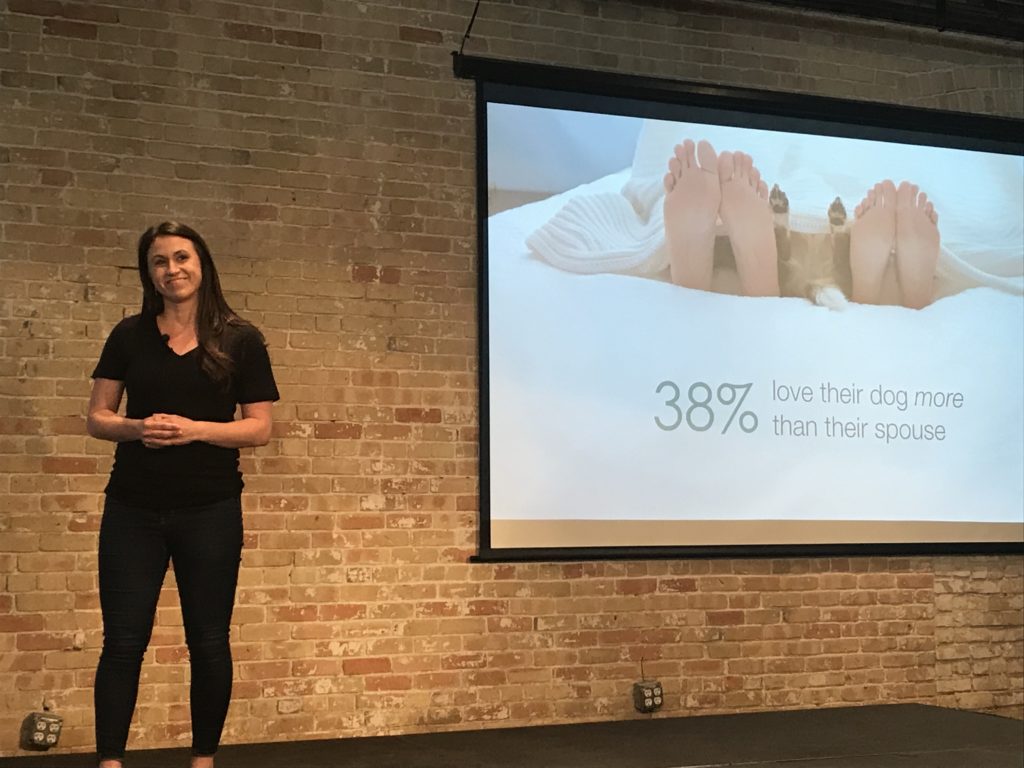
Meggie Williams, CEO, and Co-Founder of The Waggle Company
, based in Charlotte, North Carolina: It provides dog walking services through an online platform and is launching in Austin next month, said Meggie Williams, CEO, and Co-Founder. The company hires its dog walkers as employees, not contractors, she said.
The Huffington Post surveyed 1,000 dog owners and found that 38 percent love their dog more than their spouse, said Williams.
“It’s not just a dog, it’s your buddy, it’s your best friend,” she said. “And you would do anything to make sure your dog is healthy and happy.”
The Waggle Company has 60 employees and has completed more than 45,000 visits and is one of the largest dog walking services in the Southeast in less than two years, Williams said. The company is on track to reach $1.8 million in revenue this year, she said. Pet services is a $6 billion industry and it’s growing fast, Williams said. The startup is expanding into the mobile dog grooming and dog daycare industry as well, she said.
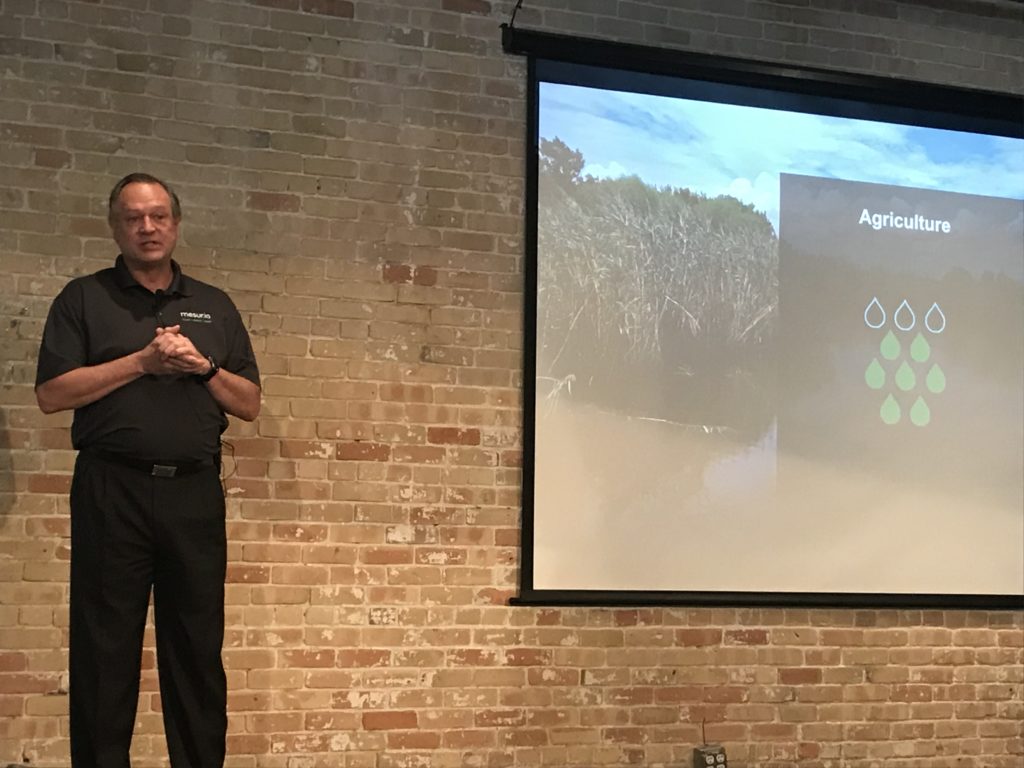
Tom Rump, CEO of Mesur.io
, based in Danville, Virginia, enables farmers to accurately water and fertilize seed by using its Earthstream product to provide real-time environmental measurements and advanced analytics.
“Today, more than 70 percent of the world’s drinkable water is used in agriculture,” said Tom Rump, CEO of Mesur.io. “Due to the lack of real-time insight, it’s estimated that as much as half of that water, half is wasted.”
In the marketplace today, there are very few solutions to solve the problem, Rump said. So Mesur.io has created the Earthstream platform to provide the solution, he said.
It is currently working with family farms in the U.S., principally in the sustainable and organic growing category, Rump said. That’s a $1.5 billion market, he said. He estimates his products can save farmers as much as 35 percent of their spend on water. The company will work with 10,000 family farms this year, Rump said.
“We are going to grow, and grow, and grow,” he said.
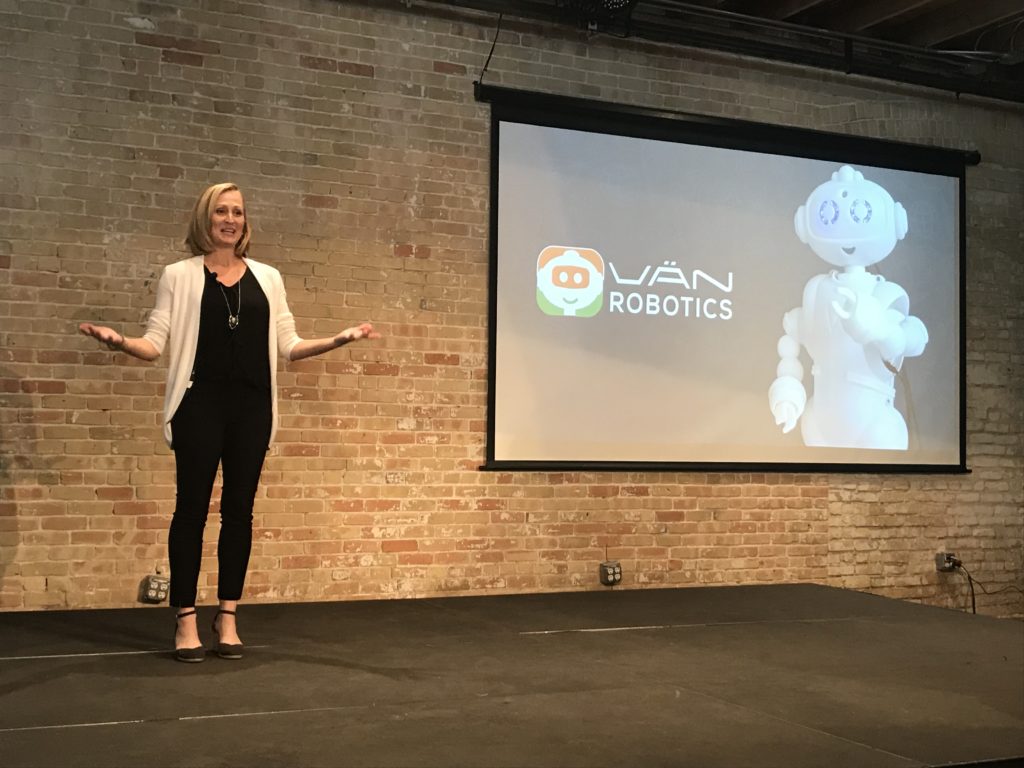
Laura Boccanfuso, co-founder, and CEO of Van Robotics
based in Columbia, South Carolina, creates smart robots named Abii that tutor children in a wide variety of subjects and deliver personalized instruction.
Only one out of every four students test proficiently in math today, said Laura Boccanfuso, co-founder, and CEO of Van Robotics. With her robot tutors, she is seeking to reverse those statistics so that three out of every four students will test proficiently in math.
Abii is in five school districts across the country in a test pilot, Boccanfuso said.
The smart robotics market is worth $20 billion in the U.S., Boccanfuso said. Van Robotics plans to introduce the robot first in schools as a teaching assistant and then in the home market and eventually the international market, she said.
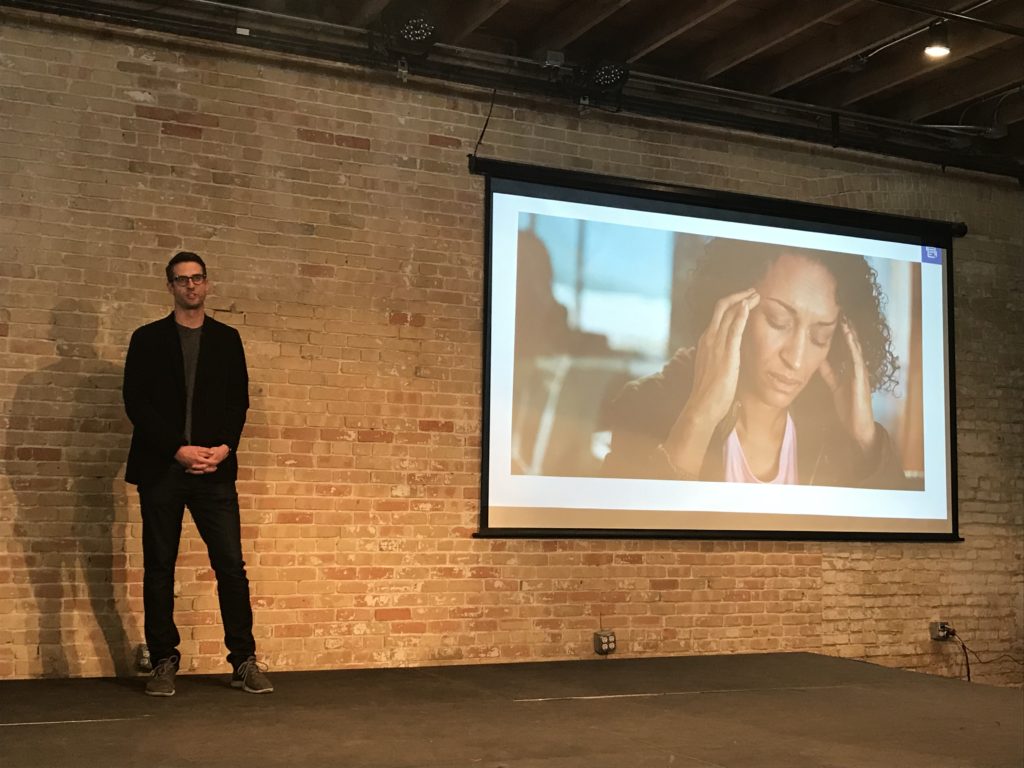
Samm Anderegg, a pharmacist, and CEO of DocStation
, based in Austin, is a clinical software platform for pharmacists that connects payers and pharmacists to cut costs and improve patient outcomes.
“Forty-eight percent of the American public suffers from a chronic illness,” said Samm Anderegg, a pharmacist, and CEO of DocStation.
DocStation launched in February and pharmacists have already added more than 5,000 patients to its platform, Anderegg said. It has earned $400,000 in revenue from health plans across seven states and is on track to add $4.2 million in additional revenue by the end of 2018, he said.
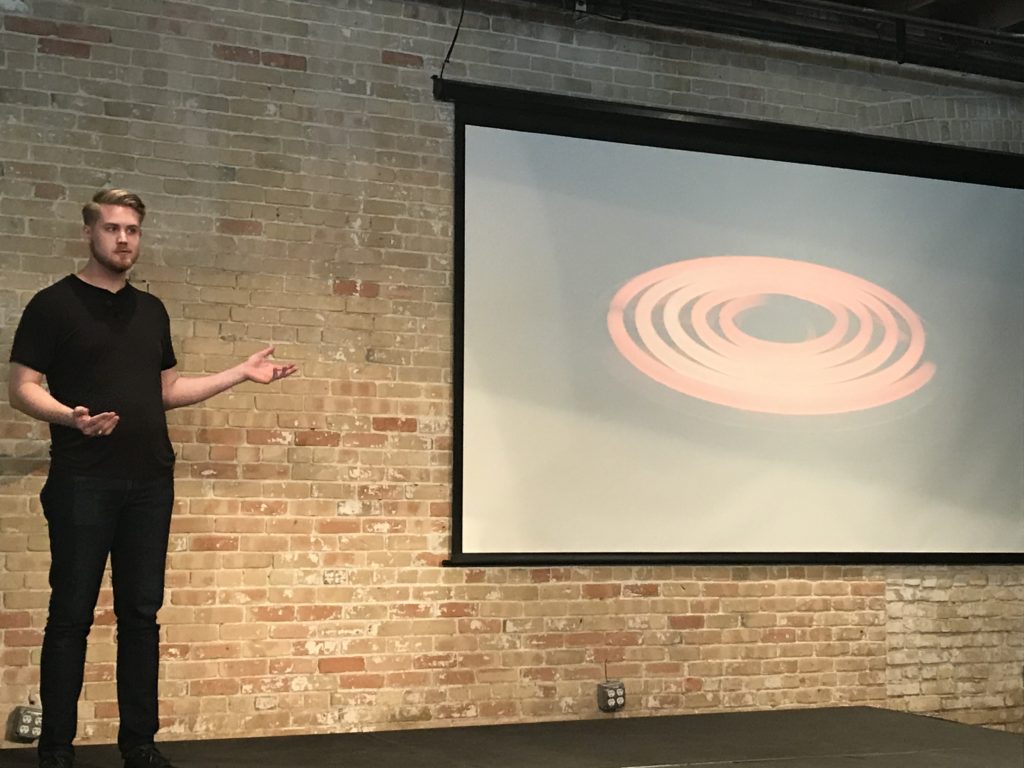
Tom Jackson, co-founder and CEO of Locus Insights
“And with the right partners we can do so much more,” Anderegg said. “DocStation transforms your local pharmacy into a community health plan.”
Locus Insights, based in Austin, which uses proprietary eye-tracking technology to provide real-time information on how users look on their smartphones.
“With this technology, we are unlocking access to a whole new world of data that has never been gathered before,” said Tom Jackson, co-founder and CEO of Locus Insights.
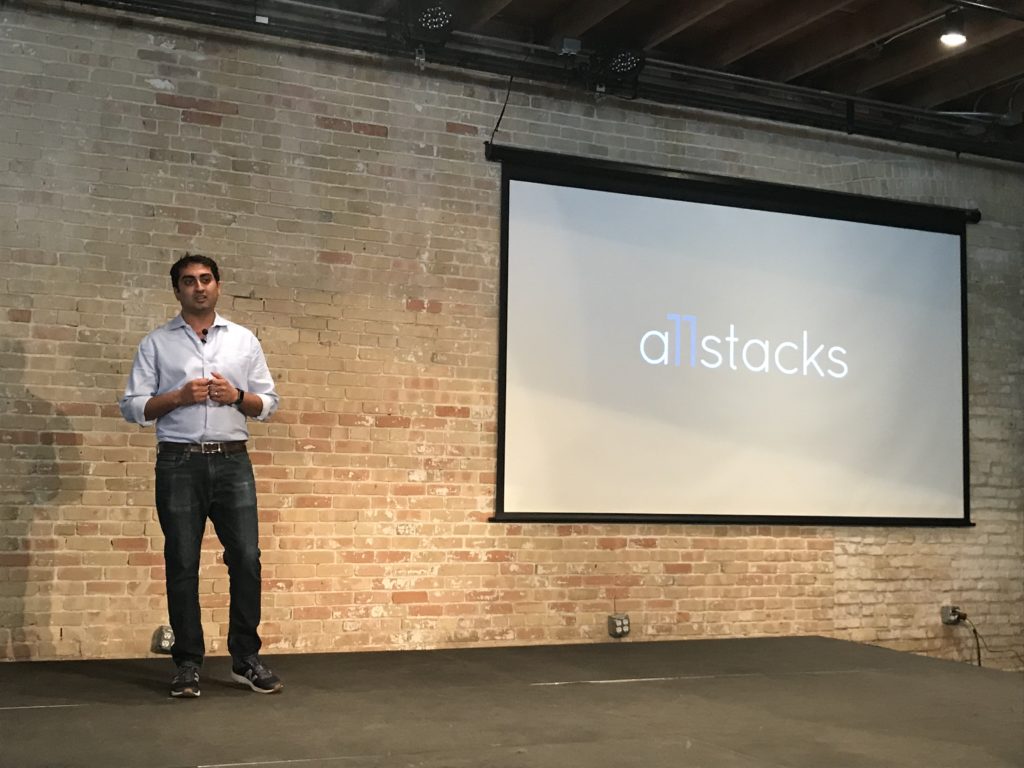
Hersh Tapadia, CEO and co-founder of Allstacks
based in Raleigh-Durham, North Carolina, measures the productivity of software engineers on a development team.
“We bring all of your engineering data into one place,” said Hersh Tapadia, CEO and co-founder of Allstacks. “And we help you bridge these knowledge gaps.”
Allstacks can help companies identify their top performers and which employees are struggling and burning out, Tapadia said.
Allstacks has been working with more than a dozen companies since launching its beta last November. It is gathering insights from more than 35,000 user accounts today, Tapadia said.
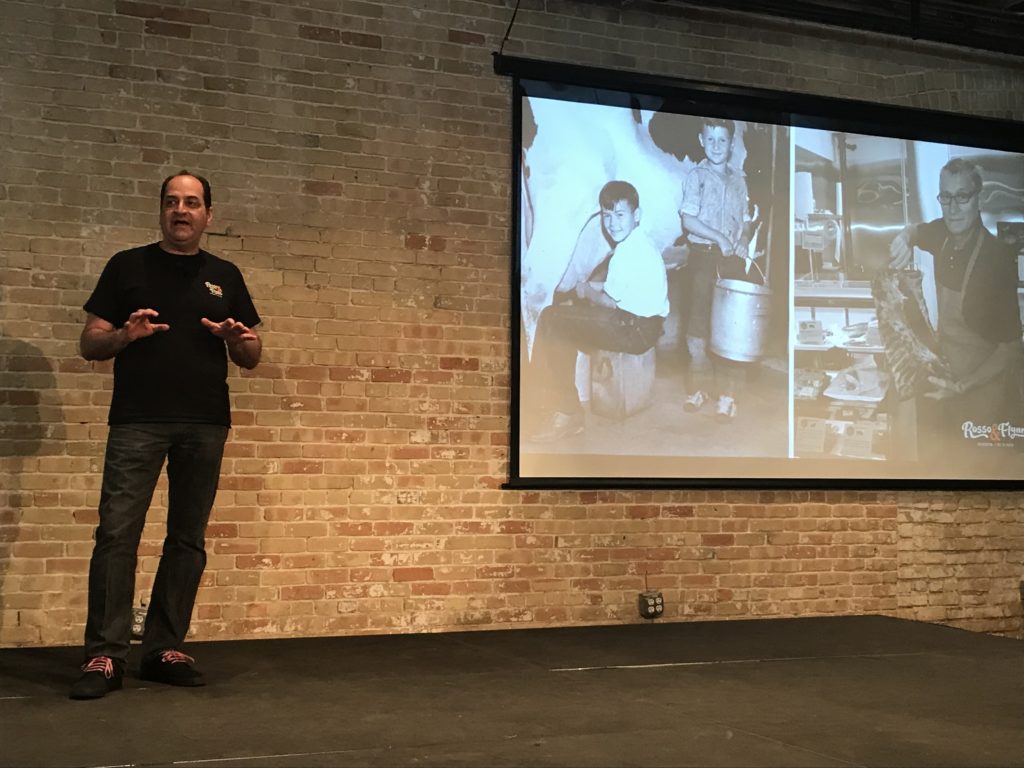
Manuel Rosso, CEO and Co-Founder of Rosso & Flynn
, based in Austin, is an online butcher shop.
“Sadly, the massive growth of factory farming really severed our connection to the land and we’ve had a generation of Americans growing up on bad food,” said Manuel Rosso, CEO and Co-Founder. “Fortunately, the pendulum is beginning to swing in the other direction.”
Consumers want more than just a brand, Rosso said. They want transparency, they want quality ingredients and they demand to know what goes into their food, he said.
The natural and organic categories are growing two to three times the rate of the rest of the grocery market, Rosso said.
“The food we eat is getting better,” he said. “But there still is a lot of work to be done.”
Rosso & Flynn plans to expand to the rest of Texas and then nationwide, Rosso said.
Transmute, based in Austin, is a blockchain development platform.
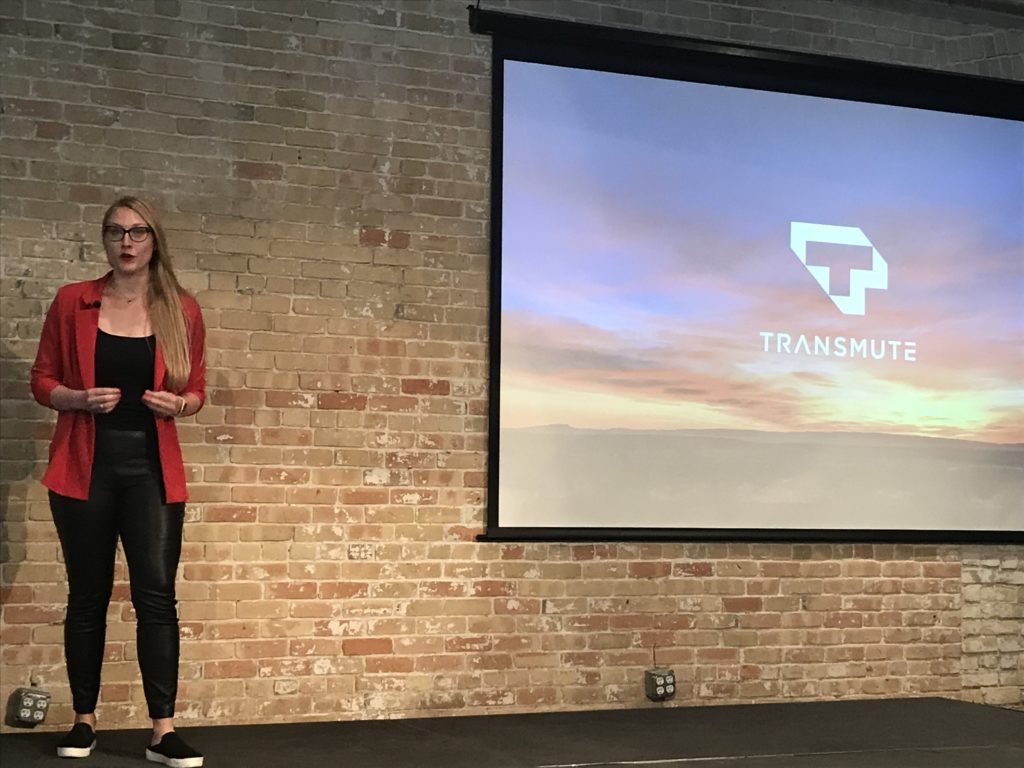
Karyl Fowler, CEO of Transmute
“We help enterprises build blockchain security into the fabric of your applications,” said Karyl Fowler, Chief Executive Officer of Transmute.
A data breach in the U.S. costs an average of $7.3 million to resolve, Fowler said.
The financial impact of a world rampant with cybercrime is quickly approaching $6 trillion a year (according to Cybersecurity Ventures’ report), Fowler said. This is a direct result of weaknesses inherent in the databases companies like yours rely on today, she said.
“The question isn’t if your data will be compromised, but when” Fowler said.
That’s why they built the Transmute platform to give companies a way to easily upgrade the security of their applications with blockchain technology, she said.
“Blockchain is a technology that is nearly impossible to tamper with due to its novel use of cryptography,” she said.
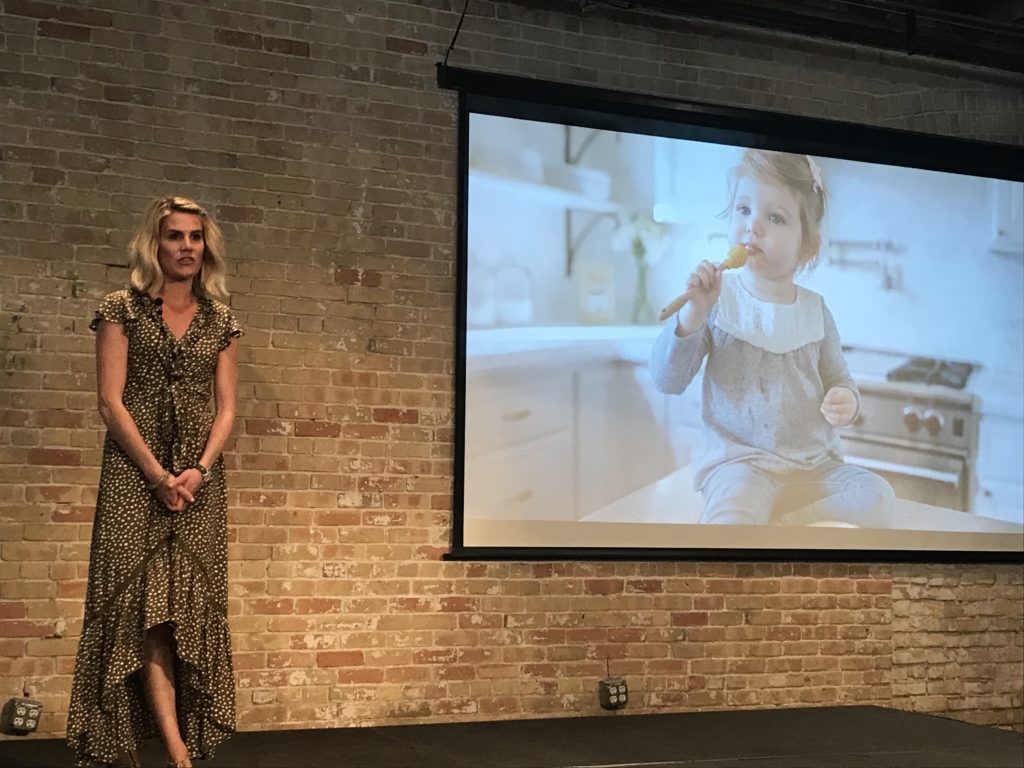 Milkful, based in Charlotte, North Carolina, makes lactation snacks for breastfeeding moms.
Milkful, based in Charlotte, North Carolina, makes lactation snacks for breastfeeding moms.
Only 22 percent of breastfeeding moms make it to the seven-month mark, as recommended by the American Academy of Pediatrics, said Dina Carey, founder, and CEO of Milkful.
Carey launched Milkful after her first daughter, Lawson Rose, was born in 2014. Carey wasn’t able to breastfeed for as long as she wanted and decided to create nutritious snacks for lactating moms to get the proper nutrition they need to continue to breastfeed their babies for as long as possible.
With an original investment of just $3,000, Carey took her business degree and culinary training and launched Milkful.com. In just its first 18th months since launch, the company has bootstrapped its way to nearly $2 million in online sales, she said.
“And that means we have supported more than 22,000 moms across the country in meeting their nursing goals,” Carey said. “Guys we are impacting lives in a big way here.”
Milkful reached its $2 million in revenue with just one product sold exclusively online and a team of just two people. Now it plans to expand its product line and connect moms with its online community, Carey said.
And, with the help of Milkful, Carey was able to reach her nursing goals with her second daughter, Iyla.
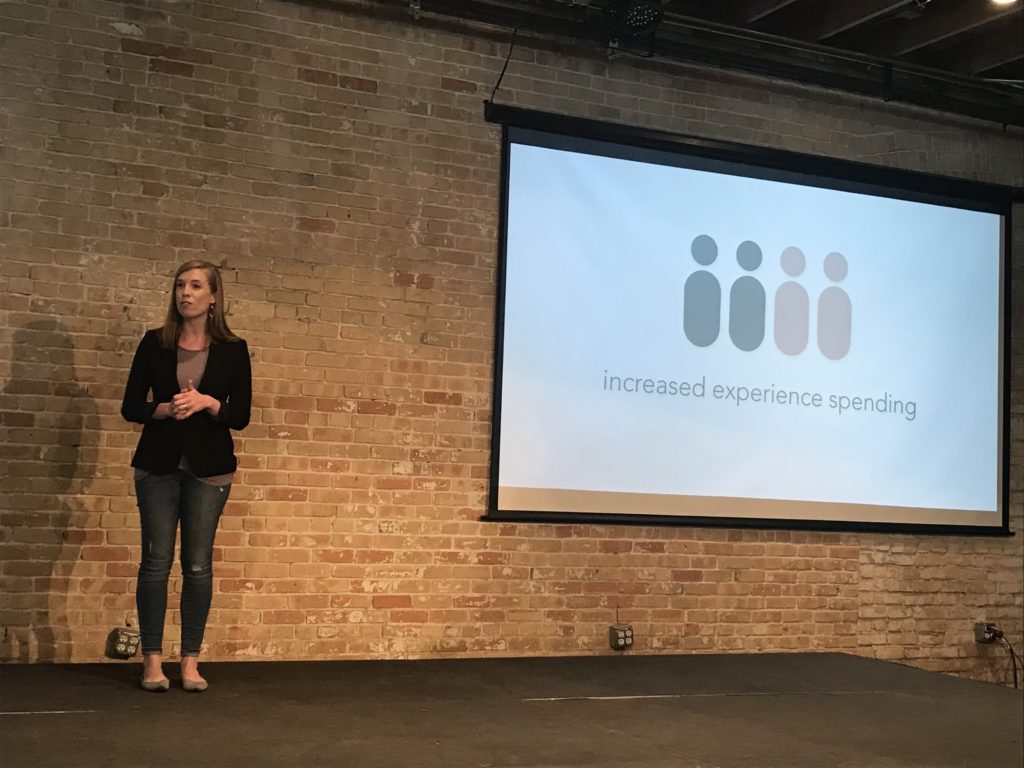
Haley Bohon, founder of SkillPop
, based in Charlotte, North Carolina, provides community-based pop-up classes.
Haley Bohon, founder of SkillPop, launched the company a few years ago to make learning new skills easy for adults. Today, more than 20,000 students have taken a class with skill pop, she said. The classes include everything from hand lettering to public speaking.
“These things are huge and they are just the beginning,” Bohon said.
SkillPop has a waitlist to teach classes and its classes sell out within hours, Bohon said.
“Because these classes have turned into amazing social experiences that our customers are obsessed with,” she said.
“It all comes down to the rapid growth demand for experiences,” she said.
As a bootstrapped and profitable company, SkillPop has done more than $750,000 in revenue since January of 2016, doubling year over year, Bohon said. And SkillPop is on track to hit $1.5 million in revenue this year, she said. It is in five markets already and it continues to expand, she said.

